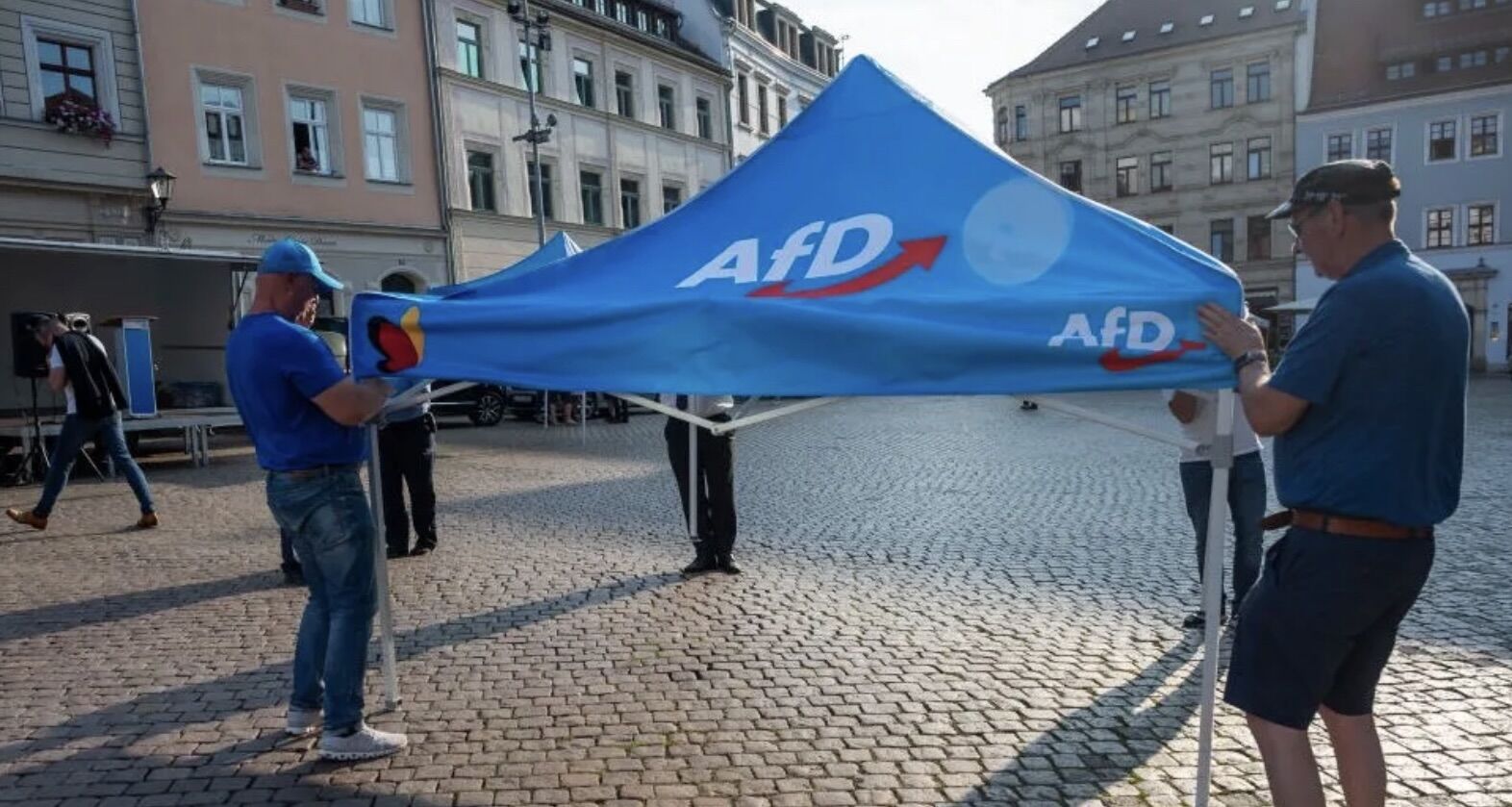Far-right candidate's historic mayoral win in Pirna sends shockwaves through German politics
Far-right candidate Tim Lochner makes history with mayoral win in Pirna, Saxony, backed by Alternative for Germany. AfD's increasing popularity poses challenges for mainstream politicians in upcoming elections.
Tim Lochner, an independent candidate backed by the far-right Alternative for Germany (AfD), has made history by winning the mayoral election in the city of Pirna, Saxony. This victory has been seen as a bellwether for the upcoming key state and local elections in Germany. The election result is significant as it marks the first time the AfD has succeeded in winning a mayoral election in a city, with Lochner securing 38.5 percent of the vote after a run-off against two right-wing candidates.
The victory is also being viewed as a strategic move by AfD to demonstrate its ability to take on leadership roles at the municipal level and pave the way for potentially forming coalitions on a regional and national level in the future. This win comes on the heels of the intelligence services in Saxony officially labeling the AfD as an extremist organization due to its anti-migrant rhetoric and attempts to undermine democracy.
Additionally, the party's increasing popularity in the formerly communist eastern states is posing a challenge to mainstream politicians, with AfD polling at around 20 percent nationally and over 30 percent in the east. This surge in support has raised concerns about the party's impact on forming stable governments, especially as other parties have vowed not to enter into coalitions with AfD. Pirna's tourism hotspot status is juxtaposed with its dark history, as it was the site of Nazi killings during the Holocaust.
The election result has sparked condemnation from critics who argue that other parties and non-voters failed to prevent the success of far-right candidates, and mainstream politicians are now grappling with how to effectively counter the rising popularity and radicalization of the AfD. The outcome of this mayoral election in Pirna has not only significant implications for the future of German politics but also underscores the challenges and complexities the country faces in dealing with the resurgence of far-right ideologies.




